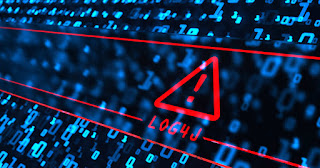What is a Trojan Virus?
A diversion, or trojan, is malware that attacks your PC camouflaged as real programming. Cybercriminals use it to keep an eye on your web-based action, control your gadget, and take your delicate information. That undermines you with extortion, data fraud, and coercion.
What Do Trojans Do?
Trojans conceal inside apparently innocuous document connections or web applications. At the point when somebody downloads or introduces them, they discharge malevolent code that can:
Log your keystrokes to take your passwords or record numbers.
Peruse your hard drive to gain delicate information.
Erase documents or the whole hard drive.
Send spam from your email account.
Freeze, shut down, and additionally assume control over your PC.
Numerous trojans lay lethargic on your PC anticipating guidelines from their "headquarters". Others might download extra malware to assist them with bypassing your security settings. A seize your PC to work with a crime.
How Does a Trojan Infection Spread?
A trojan isn't in fact a "infection" since it doesn't self-duplicate. All things being equal, trojans spread when you unconsciously download or introduce an application that stows away the malware.
Normal trojan disease strategies include:
👾 Email connections: Trojans frequently conceal messages that give off an impression of being from somebody you know. The messages can contain a connection, like a Word doc, PDF, or Succeed. Another strategy is to inspire you to tap on a connection that downloads the malware behind the scenes. When you open the connection or connection, however, the trojan taints your PC.
👾 Record sharing sites: You're likely acquainted with document-sharing sites that deal with duplicates of your number one series or the most recent game fix. Cybercriminals utilize these deluge destinations to elevate free document downloads to clueless clients. In the event that they take the snare, a trojan attack penetrates their gadget.
👾 Contaminated sites: Unstable sites are obvious objectives for cybercriminals, permitting them to transfer malware or even assume control over the whole site.
👾 Satirize messages: You could get a "parody" message on an internet-based talk application. That is a message that has all the earmarks of being from somebody you know but really isn't. The "parody" message might have a connection with a trojan-contaminated record.
Instances of Trojan Infections
Since the trojan's development, a few prominent instances of PC infection have caused a ton of harm. Here is a rundown of some that you'll need to keep away from.
Zeus
Otherwise called Zbot, Zeus is a malware bundle that contaminated 3.5 million+ PCs in the US. This included PCs at the Bank of America, NASA, and the US Division of Transportation.
Zeus takes banking subtleties and other monetary data and sends it back to the criminal server. The trojan malware additionally has a few variations like Ice-X, which have some control over program content to extricate data during monetary exchanges.
Rakhni
Rakhni is malware that began in 2013. All the more as of late, it began conveying a cryptojacker (or ransomware) to PCs. This permits cybercriminals to commandeer your PC and dig for cryptographic money.
ILOVEYOU
Delivered in 2000, ILOVEYOU caused the world's most harmful cyberattack, costing the world $8.7 billion in misfortunes. It spread through a phishing email that read, "Generously check the joined love letter coming from me". The email likewise had a connection named "ILOVEYOU". Those inquisitive enough to open the record had their machines contaminated with malware. It would overwrite documents in their gadgets and afterward send itself to their whole contact list.
Trojan Sports
Since the trojan's presentation during the 1970s, a huge number of its variations have tormented the computerized world. Investigate probably the most well-known trojan sorts.
Secondary passage trojan: Makes a "secondary passage" on your PC, permitting a malevolent outsider to control your PC and take your information. They can likewise utilize this secondary passage to transfer more malware to your gadget.
DDoS-assault trojan: This sort of trojan performs Circulated Disavowal of Administration (DDoS) assaults by flooding an organization with traffic to bring it down.
Remote access trojan: Permits cybercriminals to completely control your PC through a remote organization association, which allows them to log your keystrokes and take your data.
SMS trojan: Commandeers the SMS usefulness on your telephone. It utilizes it to send and catch instant messages, or to message premium-rate numbers to climb up your bill.
Downloader trojan: Focuses on your generally contaminated PC, downloads, and introduces more malware, including trojans and adware.
Emancipate trojan: Malware that looks for a payoff to fix the harm done to your PC, such as weakening execution or keeping information.
Step-by-step instructions to Be aware In the event that You Have a Trojan Infection
Trojans are truly adept at going undetected, important when you notice the issue, it's now past the point of no return. All things considered, you can search for a few unpretentious clues that might demonstrate trojan contamination, for example,
✔️ Impeded gadget execution, as incessant crashing and freezing and stoppages.
✔️ Expanded program and spring-up advertisements advancing antivirus items or outputs. At the point when you click on them, they download more malware to your gadget.
✔️ An adjusted work area appearance, remembering changes for variety or screen goals.
✔️ Your taskbar has changed or vanished totally.
✔️ More spam messages than expected.
✔️ Programs you don't perceive and never introduced show up in your assignment supervisor.
✔️ Your program diverts you to obscure sites while perusing the web.




Комментарии
Отправить комментарий